A hitch receiver is a device that is attached to a vehicle and provides a connection point for towing a trailer.
Hitch receivers come in different sizes and styles to accommodate various types of trailers and vehicles.
But which one is right for your vehicle?
In this blog post, we’ll discuss the different types of hitch receivers and what they are used for.
Types Of Hitch Receivers
There are five main types of hitch receivers that are classified by weight capacity and labeled as Class I, II, III, IV, and V.
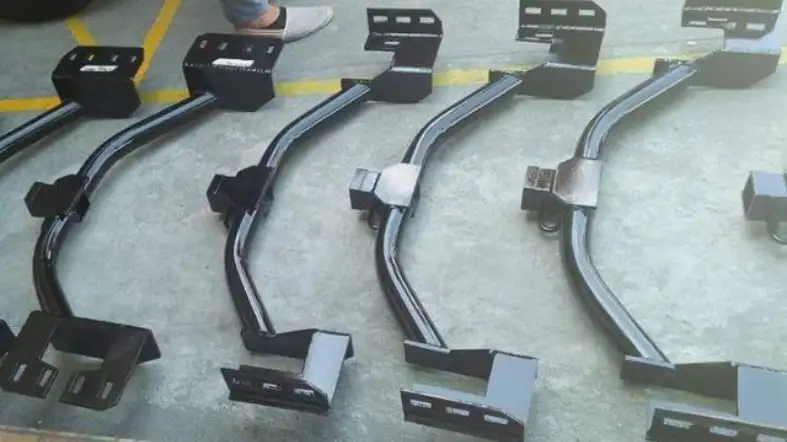
The weight capacity of a hitch receiver determines the maximum weight of the trailer it can safely tow.
It’s important to choose the right hitch receiver for your vehicle and the type of trailer you will be towing.
Using a hitch receiver that is not rated for the weight of your trailer can be dangerous and can cause damage to your vehicle and trailer.
Below we will discuss the different types of hitch receivers and what they are used for:
Class I
This type of hitch receiver is designed for vehicles with a gross trailer weight of up to 2,000 pounds and a tongue weight of up to 200 pounds.
It is typically used for small trailers, such as utility trailers or small boat trailers.
Class II
This type of hitch receiver is designed for vehicles with a gross trailer weight of up to 3,500 pounds and a tongue weight of up to 350 pounds.
It is typically used for medium-sized trailers, such as small camper trailers or utility trailers.
Class III
This type of hitch receiver is designed for vehicles with a gross trailer weight of up to 8,000 pounds and a tongue weight of up to 800 pounds.
It is typically used for large trailers, such as large camper trailers or boat trailers.
Class IV
This type of hitch receiver is designed for vehicles with a gross trailer weight of up to 10,000 pounds and a tongue weight of up to 1,000 pounds.
It is typically used for very large trailers, such as large camper trailers or horse trailers.
Class V
This type of hitch receiver is designed for vehicles with a gross trailer weight of up to 20,000 pounds and a tongue weight of up to 2000 pounds.
It is typically used for the largest trailers, such as large horse trailers or large boat trailers.
It’s important to choose the right hitch receiver for your vehicle and the type of trailer you will be towing.
Using a hitch receiver that is not rated for the weight of your trailer can be dangerous and can cause damage to your vehicle and trailer.
Does It Matter What Hitch Receiver You Have?
Yes, it does matter what hitch receiver you have.
Hitch receivers come in different sizes and styles to accommodate various types of trailers and vehicles.
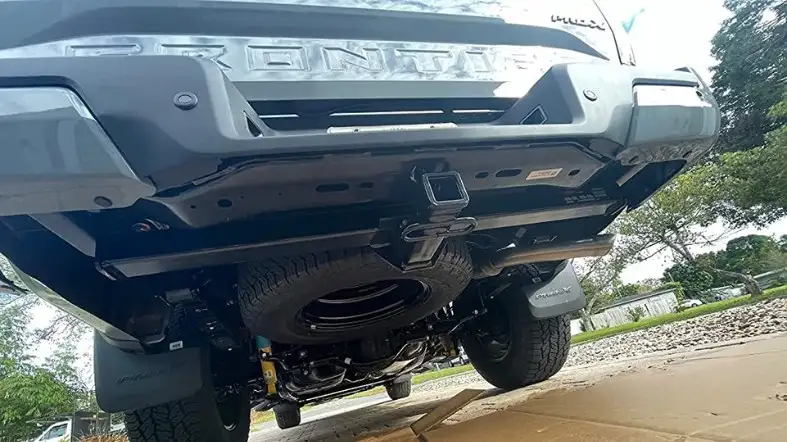
The weight capacity of a hitch receiver determines the maximum weight of the trailer it can safely tow.
Using a hitch receiver that is not rated for the weight of your trailer can be dangerous and can cause damage to your vehicle and trailer.
For example, if you have a Class II hitch receiver and try to tow a trailer that is too heavy for it, the hitch receiver could fail and the trailer could detach from your vehicle while you are driving.
This could result in a serious accident and could cause damage to your vehicle and trailer, as well as to other vehicles on the road.
It’s important to choose the right hitch receiver for your vehicle and the type of trailer you will be towing.
You can determine the weight capacity of your hitch receiver by looking at the label on the receiver or by consulting the owner’s manual for your vehicle.
You should also consult the owner’s manual for your trailer to determine its weight and to ensure that it is within the weight capacity of your hitch receiver.
In general, it’s a good idea to choose a hitch receiver that has a higher weight capacity than the weight of your trailer.
This will provide an extra margin of safety and will help to prevent damage to your vehicle and trailer.
It’s also important to properly maintain your hitch receiver and to regularly check the connection between your vehicle and trailer to ensure that it is secure.
By following these guidelines, you can ensure that you are using your hitch receiver safely and effectively.
Factors To Consider When Choosing A Hitch Receiver
When choosing a hitch receiver, there are several factors to consider such as the type of trailer you will be towing, the weight capacity of your vehicle and trailer, and any additional features that may be important to you.
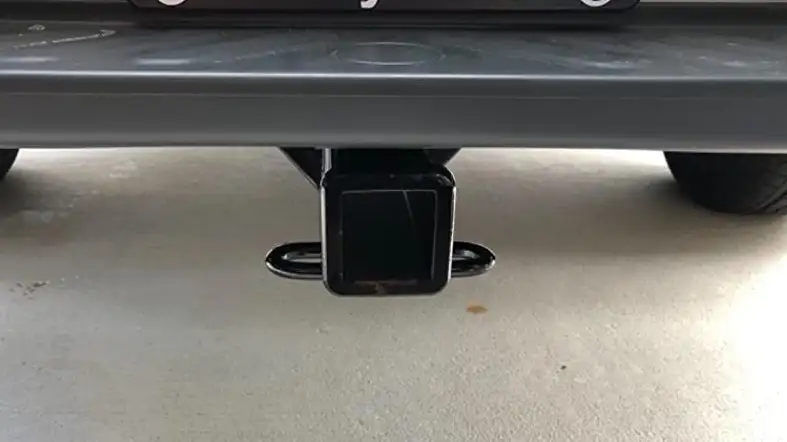
Below are some of the key factors to consider when selecting a hitch receiver:
Weight Capacity of a Hitch Receiver
The weight Capacity of a Hitch Receiver determines the maximum weight of the trailer it can safely tow.
It’s important to choose a hitch receiver that is rated for the weight of your trailer, or that has a higher weight capacity than the weight of your trailer.
Using a hitch receiver that is not rated for the weight of your trailer can be dangerous and can cause damage to your vehicle and trailer.
Size of the Hitch Receiver
Hitch receivers come in different sizes to accommodate various types of trailers and vehicles.
It’s important to choose a hitch receiver that is the right size for your vehicle and for the type of trailer you will be towing.
Using a hitch receiver that is too small for your vehicle or trailer can cause damage to your vehicle and trailer, and can make it difficult to tow your trailer securely.
Type of Hitch Receiver
There are several different types of hitch receivers, including fixed hitch receivers, removable hitch receivers, and hitch receivers with drop or rise.
It’s important to choose the type of hitch receiver that is best suited to your vehicle and the type of trailer you will be towing.
Compatibility of the Hitch Receiver with your Vehicle
Hitch receivers are designed to be compatible with specific types of vehicles.
It’s important to choose a hitch receiver that is compatible with your vehicle and that will fit securely on your vehicle’s frame.
Quality and Durability of the Hitch Receiver
It’s important to choose a hitch receiver that is made of high-quality materials and that is built to last.
A durable hitch receiver will be able to withstand the stresses of towing a trailer and will provide a secure connection between your vehicle and the trailer.
By considering these factors, you can choose a hitch receiver that is well-suited to your vehicle and the type of trailer you will be towing.
It will provide a safe and secure connection between your vehicle and trailer.
Pros And Cons Of Hitch Receivers
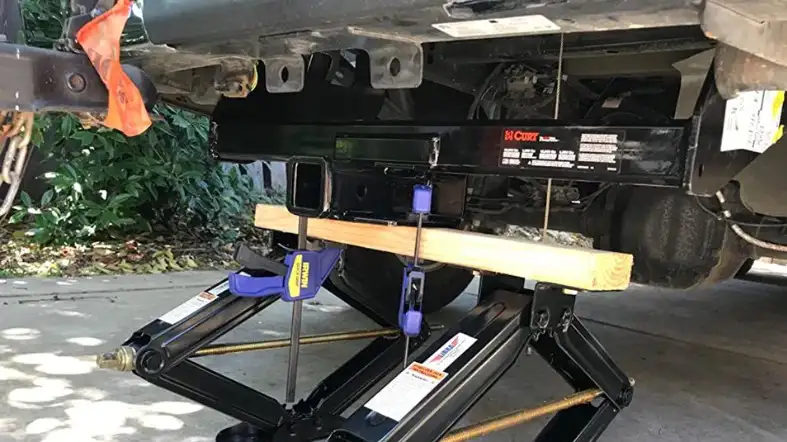
Hitch receivers can be very useful for towing trailers, but they also have some drawbacks. Some of the pros and cons of hitch receivers are:
Pros:
- Hitch receivers provide a secure connection point for towing a trailer.
- They allow you to easily attach and detach a trailer from your vehicle.
- Hitch receivers are available in a range of sizes and styles to accommodate various types of trailers and vehicles.
- They can be used to tow a wide range of trailers, including utility trailers, boat trailers, camper trailers, and horse trailers.
Cons:
- Hitch receivers can add weight to your vehicle, which can affect its performance and fuel efficiency.
- They can be expensive, especially if you need a hitch receiver with a high weight capacity.
- Hitch receivers can be difficult to install, and may require special tools or modifications to your vehicle.
- If not properly maintained, hitch receivers can rust or become damaged, which can affect their performance and safety.
Overall, the pros and cons of hitch receivers will depend on your individual needs and preferences.
If you frequently tow trailers and need a secure and reliable connection point, a hitch receiver can be a valuable addition to your vehicle.
However, if you only occasionally need to tow a trailer, the added weight and cost of a hitch receiver may not be worth it.
How To Safely Use Your Hitch Receiver?
It’s important to use your hitch receiver safely and follow all manufacturer instructions.
To safely use your hitch receiver, follow these steps:
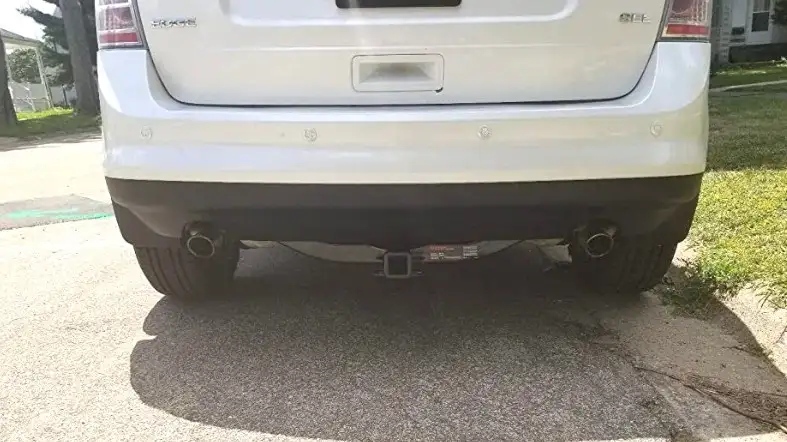
Step 1: Determine the Weight Capacity of your Hitch Receiver
Determine the weight capacity of your hitch receiver and the weight of your trailer.
Consult the owner’s manual for your vehicle and trailer to determine the weight capacity of your hitch receiver and the weight of your trailer.
Choose a hitch receiver that is rated for the weight of your trailer, or that has a higher weight capacity than the weight of your trailer.
Step 2: Check the condition of your hitch receiver
Before using your hitch receiver, inspect it for any damage or wear.
Look for signs of rust, cracks, or other damage.
If you find any damage, do not use the hitch receiver and have it repaired or replaced before using it.
Step 3: Attach Your Trailer to Your Hitch Receiver
Follow the manufacturer’s instructions for attaching your trailer to your hitch receiver.
Make sure the hitch ball is properly seated in the hitch receiver and that the trailer is securely attached to the hitch receiver.
Step 4: Check the Connection Between your Vehicle and Trailer
Before towing your trailer, make sure the connection between your vehicle and trailer is secure.
Give the trailer a gentle tug to make sure it is securely attached to your vehicle.
Step 5: Test Your Brakes and Lights
Before towing your trailer, test the brakes and lights on your vehicle and trailer to make sure they are working properly.
This will help to ensure that you can safely tow your trailer and that other drivers can see you on the road.
Step: Adjust Your Driving Style
When towing a trailer, you will need to make some adjustments to your driving style.
Accelerate and brake more slowly than you normally would, and allow for additional stopping distance.
Also, be aware of the weight and size of your trailer, and avoid sudden turns or lane changes.
By following these steps, you can safely use your hitch receiver and tow your trailer without causing damage to your vehicle or trailer, or putting yourself and others at risk.
It’s also important to regularly maintain your hitch receiver and to check the connection between your vehicle and trailer to ensure that it is secure.
FAQs About Types Of Hitch Receivers
What Is The Most Common Hitch Receiver?
The most common hitch receiver is the Class III hitch receiver.
This type of hitch receiver is designed for vehicles with a gross trailer weight of up to 3,500 pounds and a tongue weight of up to 350 pounds.
It is typically used for large trailers, such as large camper trailers or boat trailers.
Which Hitch Receiver Is Best?
It’s difficult to say which hitch receiver is best, as the best hitch receiver for you will depend on your individual needs and preferences.
To find the best hitch receiver you can consider the above factors.
What Is The Difference Between A Hitch And A Receiver?
A hitch is a device that is attached to a vehicle and provides a connection point for towing a trailer.
A receiver is a part of the hitch that the hitch ball attaches to.
The receiver is typically a square or rectangular opening that is sized to fit the hitch ball.
The hitch ball is inserted into the receiver and secured in place, providing a secure connection between the vehicle and the trailer.
So, the difference between a hitch and a receiver is that the hitch is the entire device, while the receiver is a specific part of the hitch.
Final thoughts
Hitch receivers are designed for different uses and the types of receivers you should get depend on your particular needs.
Hitch receivers are commonly used to tow trailers, boats, and recreational vehicles.
They can also be used to carry bikes and other items.
When selecting a hitch receiver, you should consider the type of vehicle you own, the weight of what you will be towing or carrying, and your budget.
